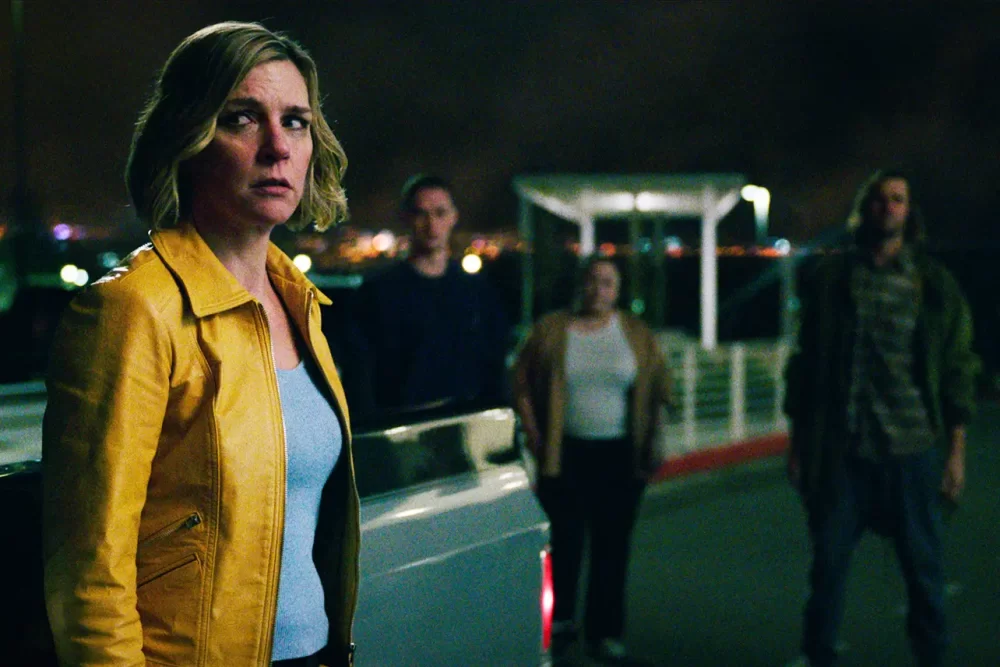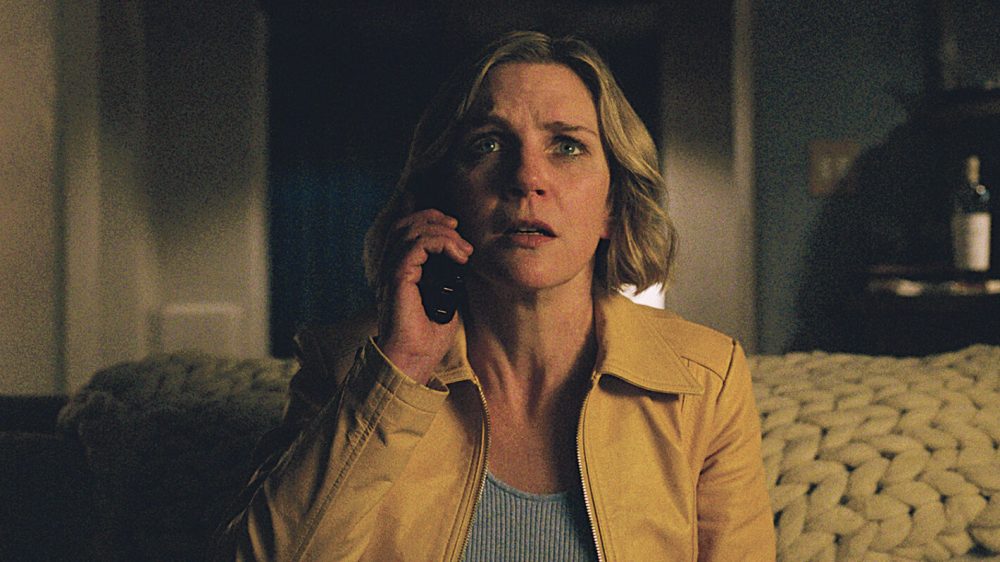Happiness is such a drag. It only ever serves to make you feel bad you’re not enjoying life as much as the next person. If you’re not happy, then why should anyone else be? Well, Vince Gilligan (Breaking Bad, The Lone Gunmen) has created a show that appears to be interested in tackling this question, and its first episode is more horror than sci-fi.
Pluribus (which is Latin for “many” or “from many”) follows Carol (Rhea Seehorn), a romantasy writer that’s unhappy with the very thing that’s made her famous. Seemingly out of nowhere for her, people start reacting to a kind of contagion that she’s immune to. Like something akin to Invasion of The Body Snatchers, everyone’s been taken over by an unknown organism or virus that makes them unwaveringly happy. They’re behaving like they’re part of a hivemind, moving in unison for a single purpose that’s yet to be fully revealed.


While the first episode starts with a more cosmically inclined focus regarding strange signals and gigawatts, it doesn’t take long to get to the part of the story where the human race is taken over. The process is swift but terrifying.
Whenever someone gets infected, their bodies start shaking violently. Eyes roll up to show their whites and some victims convulse so badly that they fall over and break their heads open. It takes but a few moments, but they’re excruciatingly painful moments that make you wonder just what it is that’s happening inside the bodies of the infected.
It’s a kind of body horror that forgoes the gore to establish a fear of the invisible. Something’s inside the body and it’s taking control of it. That we can’t see it doesn’t make it less scary. It creates disturbing questions we might not want the answers to.
Once the contagion goes large scale, Carol’s role becomes more pronounced. The audience gets the opportunity to witness the takeover from her perspective. The scenes that follow the initial shock of the virus’ spread are reminiscent of games like The Last of Us and movies like 28 Days Later and the Dawn of the Dead remake. Cityscapes are dominated by fire and smoke when seen at a distance, the infected begin gravitating towards each other to go after stragglers that have yet to be invaded by the foreign agent, and coordinated post-event clean-up efforts produce an eerie sense of finality that kills any chance of hope for the surviving few.

Judging by how fast things that happen in episode 1, it’s made clear that humanity simply had no chance. Happy meat drones are now the dominant species, led as if by a single mind. The happiness angle is not an entirely new concept, though. It’s been explored on a smaller scale in series like The Twilight Zone and early Cold War science fiction. Its framing has always been one that speaks to the demise of individuality.
In the Cold War, the idea was often treated as a metaphor for Soviet collectivism and its threat to American values. To sacrifice the self is to join a singular body of emotions and nationalistic expressions that eradicate independence and intellectual autonomy. Thought is the mind killer. The good of the whole is king, freewill be damned. Invitations to join the alien group were often followed by guarantees that giving in would bring about a kind of peace of mind and happiness that would unburden subjects of problems they need not worry about. The state or higher power knew what was good for everyone and their actions would value the greater good above all else.
Many of the different versions of Invasion of the Body Snatchers in existence explore this aspect of the takeover. They position the alien element as a chance to be born anew without the stresses of individual agency. Classics such as Invaders from Mars (1953) and The Faculty (1998) explore this as well, presenting it as an existential threat to the American way of life. The fear of becoming but a mere number in society, with no distinguishing qualities, is something popular culture has been wrestling with for decades.
Pluribus’s version of this concept hints more at the dangers inherent in newer societal expectations and anxieties. Social media and partisanship produce their own happiness standards, and people are constantly being bombarded with ads and talking head points that paint their side as having the best recipes for truth and happiness. As Vince Gilligan’s new series continues to reveal its secrets, we’ll see whether this is the type of happiness the story is putting in its crosshairs.


Happiness can be quite dangerous, especially the pursuit of it. Pluribus has a fascinating way of confronting this idea, and it resorts to the language of horror more freely than expected. There’s a scene later in the first episode where Carol is faced by a large group of infected people who move as one towards her. Smiles and unthreatening facial expressions create a false sense of security meant to convince her she’s safe. But she isn’t. The smile is a sign of compliance, of the sacrifice of self-determination. After watching the first episode of Pluribus, you too will be casting doubts on the intentions behind every smile.


